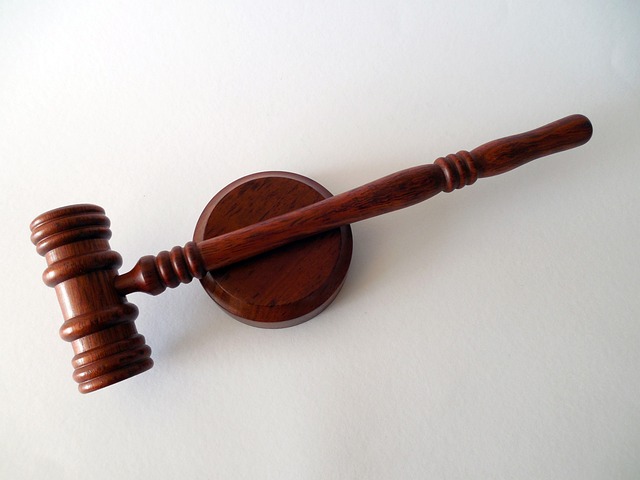Whistleblower Protection Lawsuits are essential for promoting transparency and holding organizations accountable, requiring a deep understanding of criminal procedure litigation. The process starts with identifying violations, gathering evidence, and filing a lawsuit within the correct jurisdiction. It progresses through discovery, arguments, and potential settlement or trial, while protecting whistleblowers from retaliation and indictment. Effective strategies in these lawsuits include challenging evidence admissibility and witness credibility, as showcased by successful case studies. Supportive legal frameworks, combined with organizational trust and ethics, ultimately prevent future litigation.
“Whistleblower Protection Lawsuits: Empowering Voices of Justice
In a world where transparency is paramount, whistleblower protection lawsuits play a pivotal role in upholding ethical practices. This comprehensive guide explores the intricate process, from understanding the legal framework to navigating the steps in criminal procedure litigation. We delve into the rights and protections afforded to whistleblowers, providing valuable insights through case studies that highlight both successes and challenges.
Learn about the structured approach to filing lawsuits, ensuring a fair and supportive environment for those who speak truth to power.”
- Understanding Whistleblower Protection Lawsuits: A Comprehensive Overview
- The Legal Framework: Steps Involved in Filing a Lawsuit
- Navigating the Criminal Procedure: Rights and Protections for Whistleblowers
- Case Studies: Successes and Challenges in Whistleblower Litigation
Understanding Whistleblower Protection Lawsuits: A Comprehensive Overview
Whistleblower Protection Lawsuits are a crucial aspect of ensuring transparency and accountability within organizations. These legal actions provide a safety net for individuals who expose illegal or unethical activities, often putting their personal safety at risk. Understanding the process is essential, especially in the context of white collar defense, where steps in criminal procedure litigation play a significant role.
When an individual, known as a whistleblower, decides to come forward with information about wrongdoing, they initiate a series of events. This involves careful navigation through complex legal frameworks, including federal and state laws designed to protect them from retaliation. Achieving extraordinary results in these cases requires a deep understanding of the steps involved. From the initial disclosure of information to filing a lawsuit, each phase demands strategic planning to avoid indictment and safeguard the whistleblower’s interests.
The Legal Framework: Steps Involved in Filing a Lawsuit
When navigating Whistleblower Protection Lawsuits, understanding the legal framework and the steps in criminal procedure litigation is paramount. These cases, often involving sensitive information and high-stakes scenarios, require strategic maneuvering to protect whistleblowers from potential retaliation or indictment. The process typically begins with identifying violations of whistleblower protection laws, which may be enforced through civil litigation.
Whistleblowers or their legal representatives must gather compelling evidence demonstrating the respective business’s non-compliance. This involves documenting instances of retaliation, presenting relevant records, and sometimes even deposing witnesses. Upon compiling these materials, the next step is filing a lawsuit with the appropriate court, ensuring it falls within the jurisdiction where the alleged violations occurred. The case then progresses through discovery, where both parties exchange information, followed by legal arguments and, potentially, settlement negotiations or trial proceedings.
Navigating the Criminal Procedure: Rights and Protections for Whistleblowers
Navigating the criminal procedure is a complex process for whistleblowers, who often find themselves in a delicate position. When facing legal repercussions for exposing wrongdoing, understanding one’s rights and protections is paramount. The first step in this process involves the filing of a complaint or report with relevant authorities, setting into motion the steps in criminal procedure litigation. This includes the initial investigation, where law enforcement agencies assess the evidence and determine if there’s sufficient grounds to proceed.
Whistleblowers have the right to remain anonymous during this phase, which is crucial for protection against potential retaliation. If charges are filed, the case proceeds through a series of legal maneuvers. In high-stakes cases involving white-collar and economic crimes, the goal for whistleblowers is often a complete dismissal of all charges. Legal strategies may include challenging the admissibility of evidence, questioning the credibility of witnesses, and presenting a strong defense that demonstrates the validity of the whistleblower’s concerns.
Case Studies: Successes and Challenges in Whistleblower Litigation
Whistleblower protection lawsuits are complex legal battles that often involve intricate steps in criminal procedure litigation. Case studies offer valuable insights into both successes and challenges faced by whistleblowers, providing a roadmap for navigating this intricate landscape. These cases highlight effective strategies used to protect informants who expose corporate fraud, government misconduct, or other forms of illegal activity. For instance, successful lawsuits have involved meticulous documentation, strategic disclosure of information, and robust legal arguments to ensure the rights of whistleblowers are upheld against powerful adversaries.
However, challenges remain. General criminal defense tactics employed by targets can include attempting to discredit the whistleblower’s motives, challenging the admissibility of evidence, or using procedural delays. Despite these hurdles, philanthropic and political communities have played a crucial role in supporting and defending whistleblowers, fostering a culture of accountability. Moreover, corporate and individual clients must be mindful that effective whistleblower protection is not just about legal compliance but also building trust and promoting ethical conduct within their organizations to avoid future litigation.
Whistleblower protection lawsuits play a pivotal role in upholding ethical standards within organizations. By understanding the comprehensive overview, navigating the legal framework, and recognizing the rights and protections afforded to whistleblowers during criminal procedures, individuals can effectively contribute to a culture of accountability. The case studies highlight both successes and challenges, emphasizing the importance of robust legal support and public awareness. Through these steps in criminal procedure litigation, whistleblowers can ensure their voices are heard, fostering transparency and deterring corporate misconduct.






